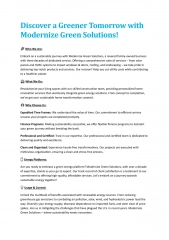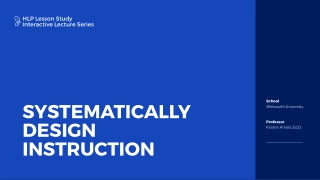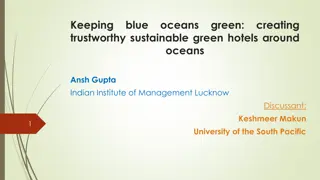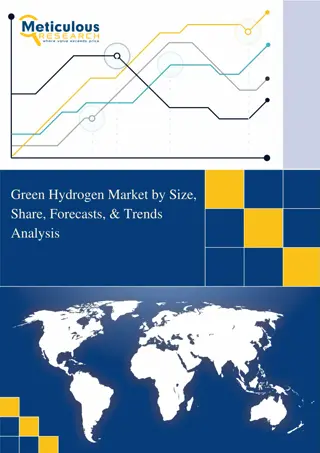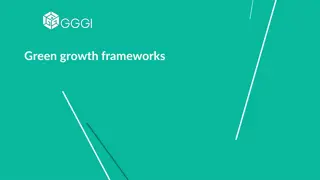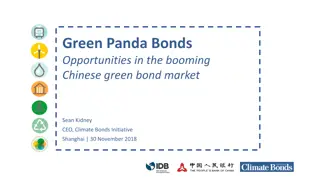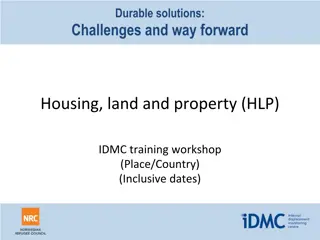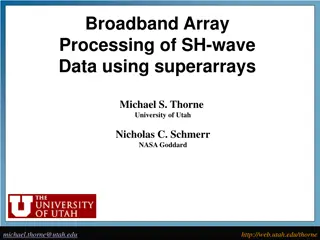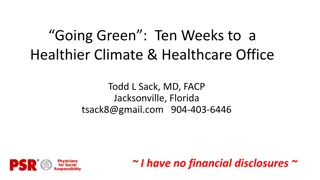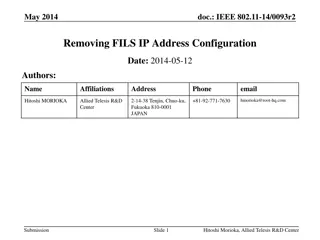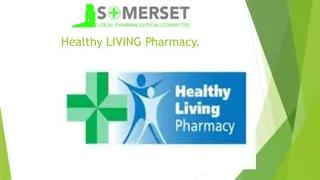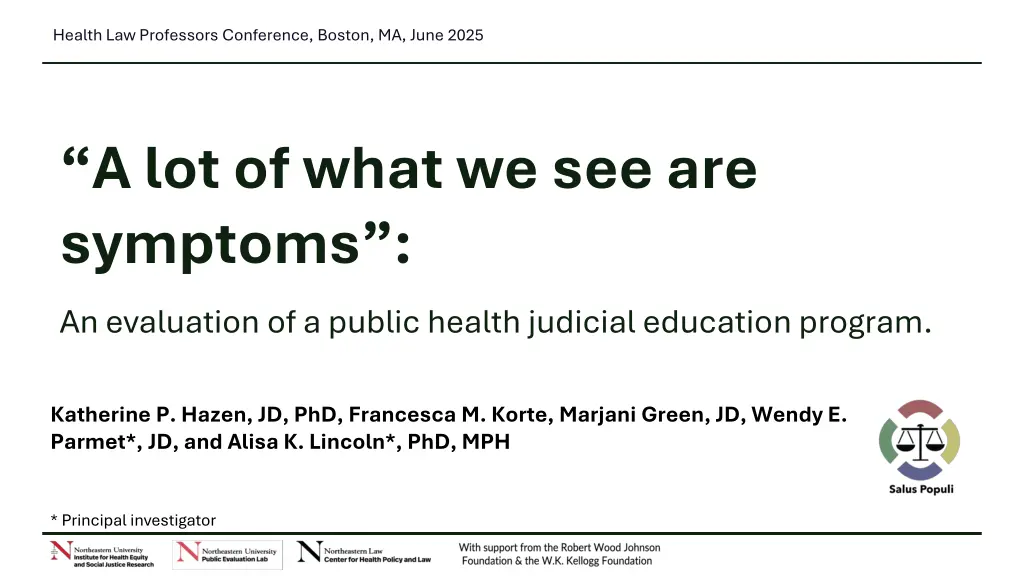
Understanding Public Health Judicial Education Program Evaluation
Explore the evaluation of a public health judicial education program at the Health Law Professors Conference in Boston, MA, June 2025. Discover who attends, the impact on participants' knowledge of social determinants of health (SDOH), how attendees utilize their learnings, and their feedback on the training. The mixed-methods evaluation strategy involves archival records, pre-and post-training surveys, and qualitative interviews to assess the program's effectiveness and applicability to legal work.
Download Presentation

Please find below an Image/Link to download the presentation.
The content on the website is provided AS IS for your information and personal use only. It may not be sold, licensed, or shared on other websites without obtaining consent from the author. If you encounter any issues during the download, it is possible that the publisher has removed the file from their server.
You are allowed to download the files provided on this website for personal or commercial use, subject to the condition that they are used lawfully. All files are the property of their respective owners.
The content on the website is provided AS IS for your information and personal use only. It may not be sold, licensed, or shared on other websites without obtaining consent from the author.
E N D
Presentation Transcript
Health Law Professors Conference, Boston, MA, June 2025 A lot of what we see are symptoms : An evaluation of a public health judicial education program. Katherine P. Hazen, JD, PhD, Francesca M. Korte, Marjani Green, JD, Wendy E. Parmet*, JD, and Alisa K. Lincoln*, PhD, MPH * Principal investigator
Health Law Professors Conference, Boston, MA, June 2025 Evaluation Questions 1)Who attends Salus Populi trainings? 2) Does the Salus Populi training increase participants knowledge about the SDOH and the relationship to their work? 3) How do attendees use what they learn? 4) What do attendees like and dislike about the training?
Health Law Professors Conference, Boston, MA, June 2025 A mixed-methods evaluations strategy Archival records provide Number of attendees Demographic characteristicsof attendees Pre-and post-training surveys evaluating Knowledge of the SDoH Understanding of the relationship between the SDoH and the law Applicability of the SDoH to legal work Qualitative interviews exploring How can Salus Populi be improved Impact on thinking and perspectives Impact on work
Health Law Professors Conference, Boston, MA, June 2025 Who attends Salus Populi? Profession* . . . are mostly judges and some are lawyers. Other 30% Jurisdiction* N/A 8% Municipal/tribal/ local 11% Federal 3% Judge 61% Lawyer 9% . . . mostly work in state or tribal courts. Court Level* State 78% N/A 26% Both 5% Trial Court 56% . . . mostly work in trial courts. Appellate Court 13% * Indicates that reported data represents only attendees for whom we have known data.
Health Law Professors Conference, Boston, MA, June 2025 Survey Methods Procedure and Participants 13 trainings N = 502 Pre-training: n = 361, Post-training: n = 141 Materials Knowledge of the SDOH (4 items) I can describe the concept of SDOH Knowledge of Research Methods (2 items) I understand the strengths of research methods used in SDOH research Understanding relationship SDOH-JDM (6 items) I understand how judicial decision-making impacts SDOH Applicability of knowledge (3 items) When making judicial decisions I feel that I can use the SDOH to make decisions Applicability of research methods (3 items) I know how to use evidence-based research on the SDOH in my work as a judge
Health Law Professors Conference, Boston, MA, June 2025 Does Salus Populi increase knowledge? Research methods knowledge*** Understanding relationship*** SDOH Knowledge*** 4 4 4 3.5 3.5 3.5 3.38 3.27 3 3 3 3.09 2.5 2.5 2.5 2.69 2.67 2.31 2 2 2 1.5 1.5 1.5 1 1 1 Pre-training Post-training Pre-training Post-training Pre-training Post-training T-tests: * p < .05, ***p < .001
Health Law Professors Conference, Boston, MA, June 2025 Will attendees use what they learned? Applicability of research methods to work*** Applicability of the SDOH to work* 4 4 3.5 3.5 3 3 3.24 2.97 2.5 2.5 2.47 2 2 2.21 1.5 1.5 1 1 Pre-training Post-training Pre-training Post-training T-tests: * p < .05, ***p < .001
Health Law Professors Conference, Boston, MA, June 2025 Interview Methods N = 13 Interviews 77% judges, 15% retired judges, 8% judicial educator Semi-structured interviews Have you been able to use your knowledge of the SDOH in your judicial decision making? How might an understanding of the SDOH shape the work of judges beyond judicial rulings? Interdisciplinary thematic analysis
Health Law Professors Conference, Boston, MA, June 2025 Results: Major Themes Shifting mindsets New Lens Understanding parties and litigant Population mindset Impact on judging Population mindset Specific Decisions System change Challenges to application
Health Law Professors Conference, Boston, MA, June 2025 Results: Shifting mindsets New Lens Validation and justification Adding new factors Health Disparities
Health Law Professors Conference, Boston, MA, June 2025 Results: Shifting mindsets New Lens it's simply confirmed what I knew to be true and has given me a little more confidence to express what I know and why I believe it is important and believe that it should factor into the ultimate decision making.. P8 Validation and justification Adding new factors there was not only a legal justification for it, but it was a medical justification. There was adherence to both federal laws that required consideration and I just enjoyed understanding more about it. P3 Health Disparities
Health Law Professors Conference, Boston, MA, June 2025 Results: Shifting mindsets New Lens This information is just not available on a day to day basis. And so be able to recognize those things and and be able to spot them going forward. Is this the most valuable part of . . . the training, I think. P9 Validation and justification a lot of what we see are the symptoms and then the social determinants for the causes of those symptoms. And rather than just focusing on the symptoms, hopefully if judges got the training, they would consider getting deeper into the situation and addressing those causes. P1 It's made me more aware of factors that I maybe kind of pushed to the side, and things I hadn't really thought of . . . It's just giving me more tools. P14 Adding new factors Health Disparities
Health Law Professors Conference, Boston, MA, June 2025 Results: Shifting mindsets I think a lot of people don't even think about racism as something that can affect health. I certainly have seen enough of that to know that it's absolutely true, but I think fleshing that out and convincing people that yes, racism with all its tentacles, also has this effect on the population. P8 New Lens Validation and justification I really liked the study about if it is sufficient to simply move people and place them in a different area . . . a lot of the time the goal is to get out of that neighborhood. What happens when that happens? Is that helpful? Is it better to concentrate on improving that neighborhood and giving more opportunity, and having better health? Or is that sort of escape, actually, an escape and does it improve anything? I thought those were really interesting issues. P7 Adding new factors Health Disparities
Health Law Professors Conference, Boston, MA, June 2025 Results: Shifting mindsets Understanding litigants and parties Lived experiences of parties Role of legal system in shaping lives
Health Law Professors Conference, Boston, MA, June 2025 Results: Shifting mindsets Understanding litigants and parties Lived experiences of parties I would be digging deeper into a person's ability to perform certain functions. If it's about how are they able to get to and from the drug testing or do they even live in a city that provides it? Do you have to go to another community? Do you have transportation? In other words, making sure that whatever the judge is doing, that person can perform so that they are successful in what the court's ordering, the conditions that the court puts down. P2 Role of legal system in shaping lives
Health Law Professors Conference, Boston, MA, June 2025 Results: Shifting mindsets Understanding litigants and parties I look at my sentencing guidelines, and you have these criteria, and this is where it lands, and then I'm crossing it here, and this is the offense, and here's my sentence, and that's it. I think the social determinants help shift the entire conversation. I always tell someone that I don't want to have power over you, what I want to do is for you to power over yourself. How can I craft a sentence that meets that and pulls you in as much as it's accountability. I think the social determinants of health helps us to more not just logically, but practically participate in sentencing. P6 Lived experiences of parties Role of legal system in shaping lives
Health Law Professors Conference, Boston, MA, June 2025 Results: Shifting mindsets Population mindset I think when you understand people's entire plight and where they're coming from the issues that they're having, the issues that their families may be having, I just think it makes you a more well- rounded person when you are interacting with people every day who are very different from you. - P5 Applying societal context the system . . . we have in place to deal with individuals who are suffering from severe mental illness is just not working . . . Someone would be charged with I don't know trespassing, because they're chronically unhoused, or maybe it's because they're in crisis, and they would go to jail, and I would release them. And then, you know, two, three weeks later, I'd see the same person charged with the same charge. P12
Health Law Professors Conference, Boston, MA, June 2025 Results: Major Themes Shifting mindsets New Lens Understanding parties and litigant Population mindset Impact on judging Population mindset Specific Decisions System change Challenges to application
Health Law Professors Conference, Boston, MA, June 2025 Results: Impact on judging Population Mindset even though in court, you're dealing definitionally with individuals and individual rights and individual cases, that it's important to remember societal impacts. In some ways, it's really an apples to oranges we're dealing with. What are the societal determinants that are going to be impacting? Whereas what I'm seeing is that individual person. How do I dictate the knowledge of societal information on a population base when I'm dealing with one person. P7 Do something different caused me to think about what I can do to hopefully help people who are before me try to move past that. And then as to racism. I think that's just, if I recall correctly, just the ongoing systemic trauma inflicted upon minorities in our society and, how that impacts people long term. - P1
Health Law Professors Conference, Boston, MA, June 2025 Results: Impact on judging Informed Specific Decisions Communication Against punitive measures
Health Law Professors Conference, Boston, MA, June 2025 Results: Impact on judging Informed Specific Decisions Communication When I'm telling somebody, they have to go do an intake at a mental health place I now ask, do you know how to get there? Do you have a means to get there? What's going to be a reasonable time period for you to do that P7 Against punitive measures it would be to make sure that we're learning to write in a way that that recognizes those social determinants and so that we don't write in a biased way - P11
Health Law Professors Conference, Boston, MA, June 2025 Results: Impact on judging Informed Specific Decisions Communication might yield a judge who is more likely to ask follow-up questions and get like a fuller story about what's really going on in someone's life, and then hopefully craft an order that is more responsive to that reality. P13 Against punitive measures And I took the perspective after that course that, let's order them to mediation on the front end before they even see a judge, and see if they can work it out before they even come to court. - P12
Health Law Professors Conference, Boston, MA, June 2025 Results: Impact on judging System change Holistic and tailored justice Interdisciplinary collaboration
Health Law Professors Conference, Boston, MA, June 2025 Results: Impact on judging System change "It might push certain areas to be more inclined to do either collaborative court or restorative justice type courts if you can start thinking beyond just the one person and how do we help this area that that could be very beneficial. P5 Holistic and tailored justice Interdisciplinary collaboration I think that it's not always clear how social determinants of health, how health just can infuse a lot of what we do We're not just doing criminal cases; we're doing civil cases as well. [We must explore] how these factors come into play in the civil arena also. P6
Health Law Professors Conference, Boston, MA, June 2025 Results: Impact on judging System change Holistic and tailored justice "I think being able to partner outside of the judicial system... people that take these kinds of seminars and learn about the impact of the social determinants will be more inclined to come up with ideas outside of like, imposing sentences. P8 Interdisciplinary collaboration
Health Law Professors Conference, Boston, MA, June 2025 Results: Major Themes Shifting mindsets New Lens Understanding parties and litigant Population mindset Impact on judging Population mindset Specific Decisions System change Challenges to application
Health Law Professors Conference, Boston, MA, June 2025 Results: Challenges to application Challenges to Application Individual characteristics Resources Constraints by legal system
Health Law Professors Conference, Boston, MA, June 2025 Results: Challenges to application Challenges to Application Lack of exposure themselves to representing or dealing with people who are themselves, never having represented persons who are indigent. - P2 Individual characteristics People who view their job on the bench as being make a decision based what's strictly in front of them at that point in time. Don't bother me with all this other superfluous crap, they would call it. I don't want this, I don't care about the background. I don't care about how people got here. Where they are, you know. I want to deal with what s in front of me right now. I don't have time for all this extra stuff. Just let me let me make my decision, and it don't bother me. Let me go my merry way, and and go forward that way. P9 Resources Constraints by legal system
Health Law Professors Conference, Boston, MA, June 2025 Results: Challenges to application Challenges to Application Individual characteristics That would be way too costly, and and in terms of money and time, and everything else for every particular case you face so you just would not have...the judge would not have the opportunity to get that information any other way. P9 Resources I mean my ideas about how to address lack of those kinds of resources is way beyond what a judge could do. It has more to do with allocating tax dollars differently and making these things a priority P10 Constraints by legal system
Health Law Professors Conference, Boston, MA, June 2025 Results: Challenges to application Challenges to Application The law doesn't look at group and there are very few situations where you're allowed to look at group in sentencing. You can look on whether you give a low term because of issues they face, but that's kind of it. With guilt and not guilt, with a lot of punishment, that's not group based in our system of law [. . .] I can use it in crafting solutions, but for a lot of things before I get there, that's not something I'm even allowed to look at. P7 Individual characteristics Resources I think that part of the value of what Salus Populi does and can do is to educate not only judges because we, for the most part, are confined to the record that is in front of us, and we can't go outside, we're not supposed to be doing independent research, all of that stuff. P8 Constraints by legal system
Health Law Professors Conference, Boston, MA, June 2025 Discussion and future directions We will continue to: Conduct and analyze interviews Providing education on the SDoH to upstream actors who shape the SDoH is an innovative way to address population health. Improve survey response rate Develop impact evaluation using judicial writings Disseminate lessons learned and findings to diverse, interdisciplinary audiences Improve the Salus Populi program
Health Law Professors Conference, Boston, MA, June 2025 This work would not have been possible without the contributions of our funders and team: Robert Wood Johnson Foundation W.K. Kellogg Foundation Jasmine Howard Mehreen Butt L. Virginia Martinez Tibrineda Fonesca Faith Khalik Madison Haywood Kayon Morgan Anna Kane Krystal Abbott Joud Rai Alexandra Alden Linda Tvrdy Tiana Yom Suzanne Garverich Thank you!

